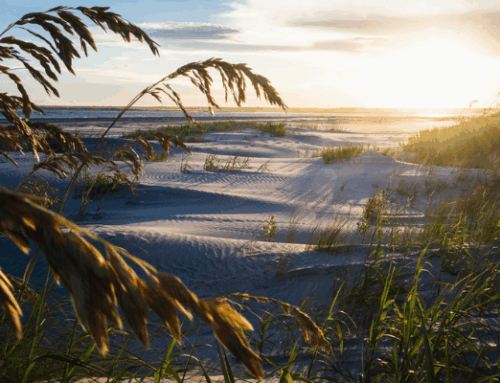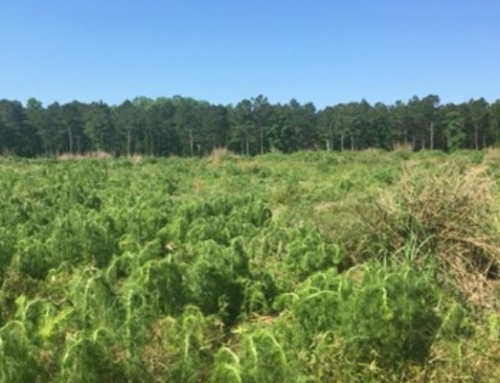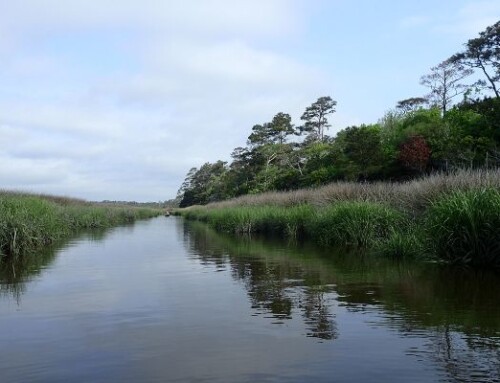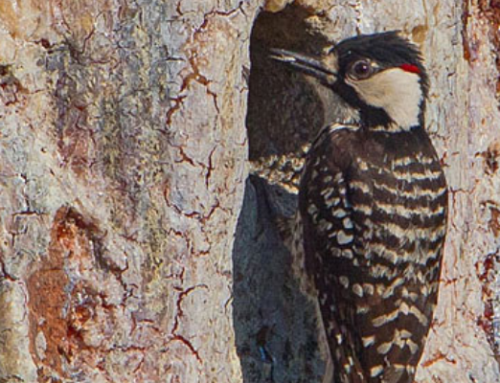AmeriCorps 2023-2024 Completion Interview
Lauren Waibel and Jordan Pilcher
The Coastal Land Trust is awarded 1-2 members of the Resilience Corps program with AmeriCorps NC each year thanks to a partnership with the Conservation Trust for North Carolina. Lauren Waibel (L) was this year’s Stewardship and Volunteer Coordinator and Jordan Pilcher (R) was this year’s Environmental Education Coordinator. Read along to “hear” what this year’s members had to say about the program!
Why did you sign up for the AmeriCorps program with the Coastal Land Trust?
Lauren: I applied to this program because of my passions in Environmental and Community-oriented work. I was excited about the conservation work the Coastal Land Trust does, and was interested in becoming more familiar with the ecology of Southeastern North Carolina.
Jordan: I actually had not heard of AmeriCorps before this position – I saw the position posting through the Coastal Land Trust and was drawn to the idea of being an Environmental Educator serving the coastal counties of North Carolina, including my home county. I then learned that this was the purpose of AmeriCorps: giving back to communities in the United States. I was drawn to AmeriCorps and the ResilienceCorps NC programs because of their missions.
What was one thing you were nervous about?
Lauren: Upon starting my service at the Coastal Land Trust, I was nervous about keeping up with all the land trust- specific terminology that was new to me, as well as navigating solo monitoring trips. Over time, I’ve learned the lingo and have become more confident in my monitoring and general fieldwork skills.
Jordan: I was mostly nervous about how much I had to learn in this position! My degrees are in Marine Biology and Oceanography, so I did not have a very strong background in terrestrial ecosystems in North Carolina. Our environmental education programs focus on the longleaf pine ecosystem, carnivorous plants, and pollinators, so I knew I had a lot to learn considering my marine science background.
What is something new you learned?
Lauren: Among the many things I’ve learned about the ecosystems in Southeastern NC, I’m most fascinated by the benefits of controlled burns and the dependence of the Longleaf Pine ecosystem on fire, as well as its symbiotic relationships with other organisms like the Red Cockaded Woodpecker.
Jordan: I have learned so much since starting at the Coastal Land Trust. My favorite things that I’ve learned about are all of the incredible species of carnivorous plants that we have in coastal North Carolina – Venus flytraps, pitcher plants, sun dews, and more! I have also learned about how important fire is for not only our carnivorous plants, but for many different ecosystems throughout coastal North Carolina.
What was your favorite moment?
Lauren: My favorite moment was seeing the huge turnout of Volunteers at the Reaves Chapel Cemetery Cleanup Day in December. It has been so inspiring to me how many people want to give up their Saturday mornings to help out and get involved in their community.
Jordan: My favorite moment at the Coastal Land Trust was our Flytrap Frolic event in June. It was so wonderful to teach families about our carnivorous plants and share the beauty of the Stanley Rehder Garden with our community. There’s nothing I love more than watching people get excited about the unique ecology and biology of coastal North Carolina.
Thank you so much to Jordan and Lauren for a wonderful year! Learn more about the Resilience Program NC with Conservation Trust for North Carolina.
Photo on right thanks to Three Pines Project, formerly Nature Connect.






